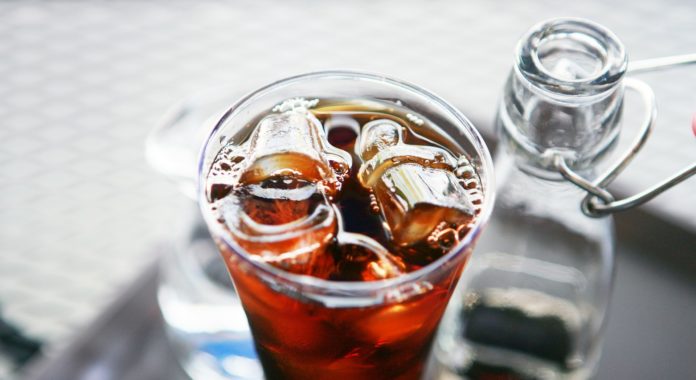Diet drinks associated with an increased risk of stroke caused by a clot among post-menopausal women
Among post-menopausal women, drinking multiple diet drinks daily was associated with an increase in the risk of having a stroke caused by a blocked artery. This is an especially significant risk in small arteries, according to research published in Stroke, a journal of the American Heart Association.
Researchers analyzed data on 81,714 postmenopausal women (age 50-79 years at the start) for an average of 11.9 years after they enrolled between 1993 and 1998. At their three-year evaluation, the women reported how often in the previous three months they had consumed diet drinks such as low calorie, artificially sweetened colas, sodas and fruit drinks. The data collected did not include information about the specific artificial sweetener the drinks contained.
Heavy intake of diet drinks, defined as two or more times daily was found to more than double stroke risk in all post-menopausal women including obese women without previous history of heart disease or diabetes
Compared with women who consumed diet drinks less than once a week or not at all, women who consumed two or more artificially sweetened beverages per day were:
-
23 percent more likely to have a stroke;
-
31 percent more likely to have a clot-caused (ischemic) stroke;
-
29 percent more likely to develop heart disease (fatal or non-fatal heart attack); and
-
16 percent more likely to die from any cause.
Heavy intake of diet drinks, defined as two or more times daily was found to more than double stroke risk in all post-menopausal women including obese women without previous history of heart disease or diabetes.
“Many well-meaning people, especially those who are overweight or obese, drink low-calorie sweetened drinks to cut calories in their diet. Our research and other observational studies have shown that artificially sweetened beverages may not be harmless and high consumption is associated with a higher risk of stroke and heart disease,” said Yasmin Mossavar-Rahmani, Ph.D., lead author of the study and associate professor of clinical epidemiology and population health at the Albert Einstein College of Medicine in the Bronx, New York.
The results were obtained after adjusting for various stroke risk factors such as age, high blood pressure, and smoking. These results in postmenopausal women may not be generalizable to men or younger women.
Although this study identifies an association between diet drinks and stroke, it does not prove cause and effect because it was an observational study based on self-reported information about diet drink consumption.
The American Heart Association recognizes diet drinks may help replace high calorie, sugary beverages, but recommends water (plain, carbonated and unsweetened flavored) as the best choice for a no calorie drink.


